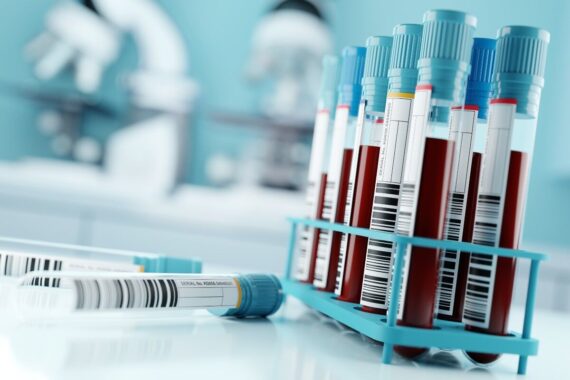GP practices asked to identify undiagnosed infected blood scandal patients

NHS England has asked GP practices to help identify undiagnosed patients affected by the contaminated blood scandal.
From next month, GP practices will ask new patients registering with them if they had a blood transfusion before 1996, with those who did then being offered a test for Hepatitis C.
The commissioner has issued new guidance to GPs on introducing the new questions, capturing respondents and supporting patients where infection risk is identified.
The questions will be added to online GP registration services, and only patients born on or before 31 December 1995 will be asked.
The paper registration form (PRF1) will also be updated for those who cannot or do not wish to register online.
The guidance said: ‘Where patients indicate that they have had a blood transfusion before 1996 and have not previously been tested for hepatitis C, GPs and health care professionals should follow this up.
‘Until the additional hepatitis C testing question is added to the online GP registration service, practices may need to discuss with patients during a consultation (or check the patient record beforehand) to establish if they have been previously tested for hepatitis C.’
Patients at risk will be able to order self-testing kits to complete at home, or will be able to access testing at GP surgeries, sexual health clinics and other services.
The drive to identify undiagnosed patients follows a recommendation made in the Infected Blood Inquiry report last year.
The Infected Blood Inquiry report, led by former High Court judge Sir Brian Langstaff, recommended that GP practices should ask new patients about previous transfusions ‘as a matter of routine’.
The report added: ‘There need be no alarm for the patient about this: rather, the offer should instill confidence that their safety is being protected by the doctor, and a substantial majority of previously untested patients may expect the reassurance of a negative test.
‘However, if the test is positive (as it is likely it will be in some cases) then treatment with direct acting antivirals may follow.’
According to the report, around 26,800 people were infected with Hepatitis C after a blood transfusion and around 1,250 people were infected with HIV after being treated for bleeding disorders.
NHS England national medical director Professor Sir Stephen Powis said: ‘The failures of the contaminated blood scandal have had a horrifying impact for patients and their families for decades, and I would like to reiterate our deepest apologies for the role the health service played in the suffering and loss for so many.
‘The NHS is dedicated to implementing the Inquiry’s recommendations and this simple change to the GP registration process for patients is a vital step forward in ensuring that nobody affected by contaminated blood is living undiagnosed and unsupported.
‘By routinely checking their risk when anyone signs up to a new GP and offering fast Hep C tests where necessary, we will ensure any undiagnosed cases can be found and treated as quickly as possible, while enabling thousands more to receive the reassurance of a negative test.’
At the beginning of the inquiry in 2019, NHS England wrote to CCGs to remind doctors to ‘consider’ testing for hepatitis C in patients with unexplained symptoms.
And in 2018, Pulse reported on a campaign launch that would give GPs a key role in identifying people with the infection who had not been diagnosed.
GP actions from the new NHSE guidance
All GP practices are requested to note that:
- only new patients, born before 1996, will be invited to complete the new question(s) when registering with a new GP practice (and only those patients will see these question(s) if using the online GP registration service)
- patient responses using the online GP registration service will not be filed automatically and will need to be reviewed and actioned from the patient registration email, under the section titled ‘Important information’ (highlighted in blue)
- where new patients indicate a history of blood transfusion and infection risk at registration, processes need to be in place to discuss, offer or signpost to hepatitis C testing, as part of the new patient (health check) consultation (or opportunistically before this)
- free home self-tests are available for patients to order from the NHS.UK website
Source: NHS England
Portfolio careers
What is the right portfolio career for you?

Visit Pulse Reference for details on 140 symptoms, including easily searchable symptoms and categories, offering you a free platform to check symptoms and receive potential diagnoses during consultations.















